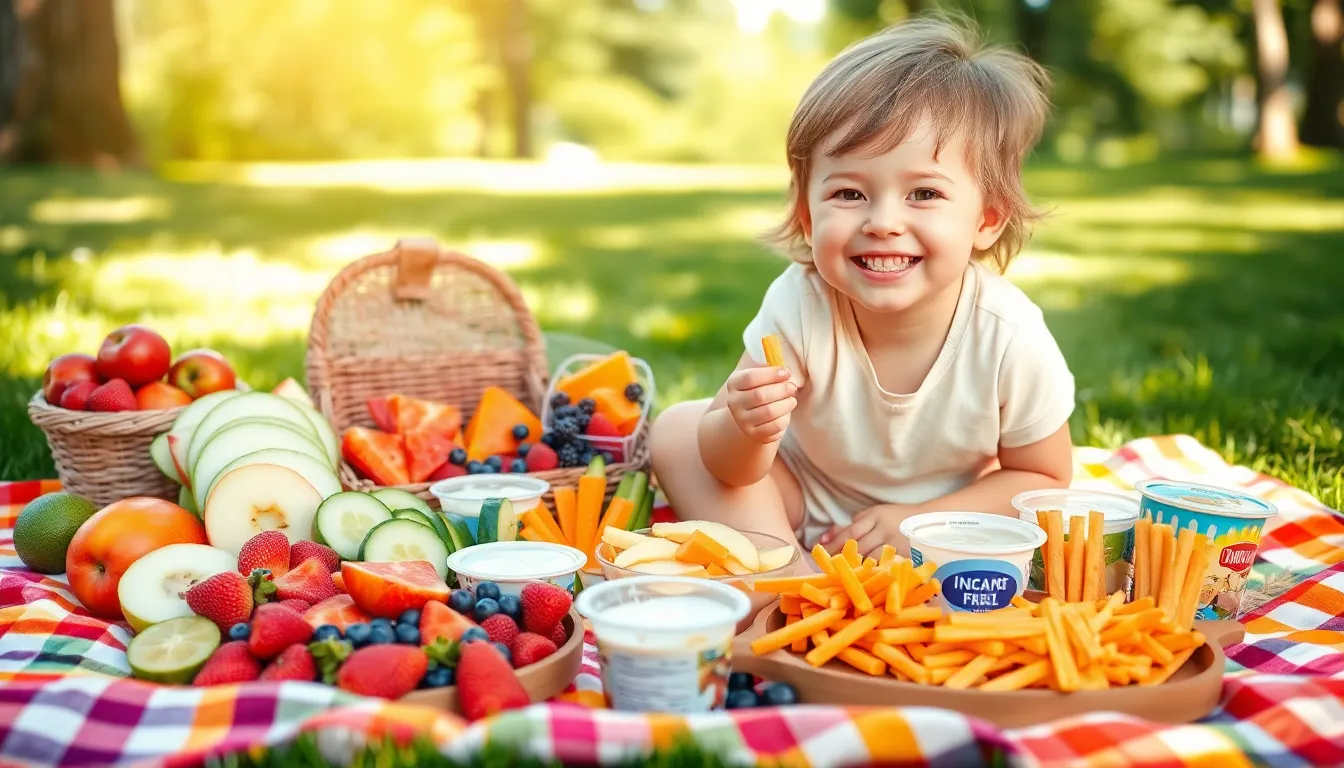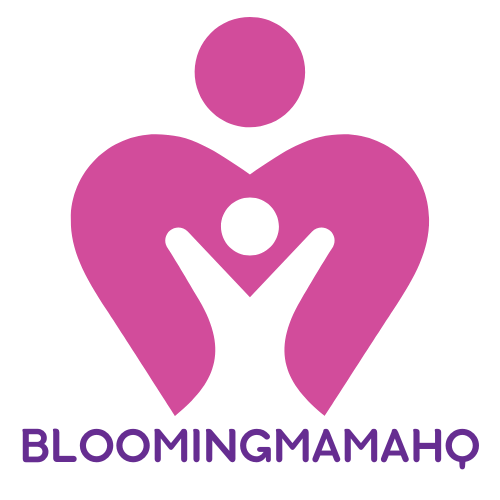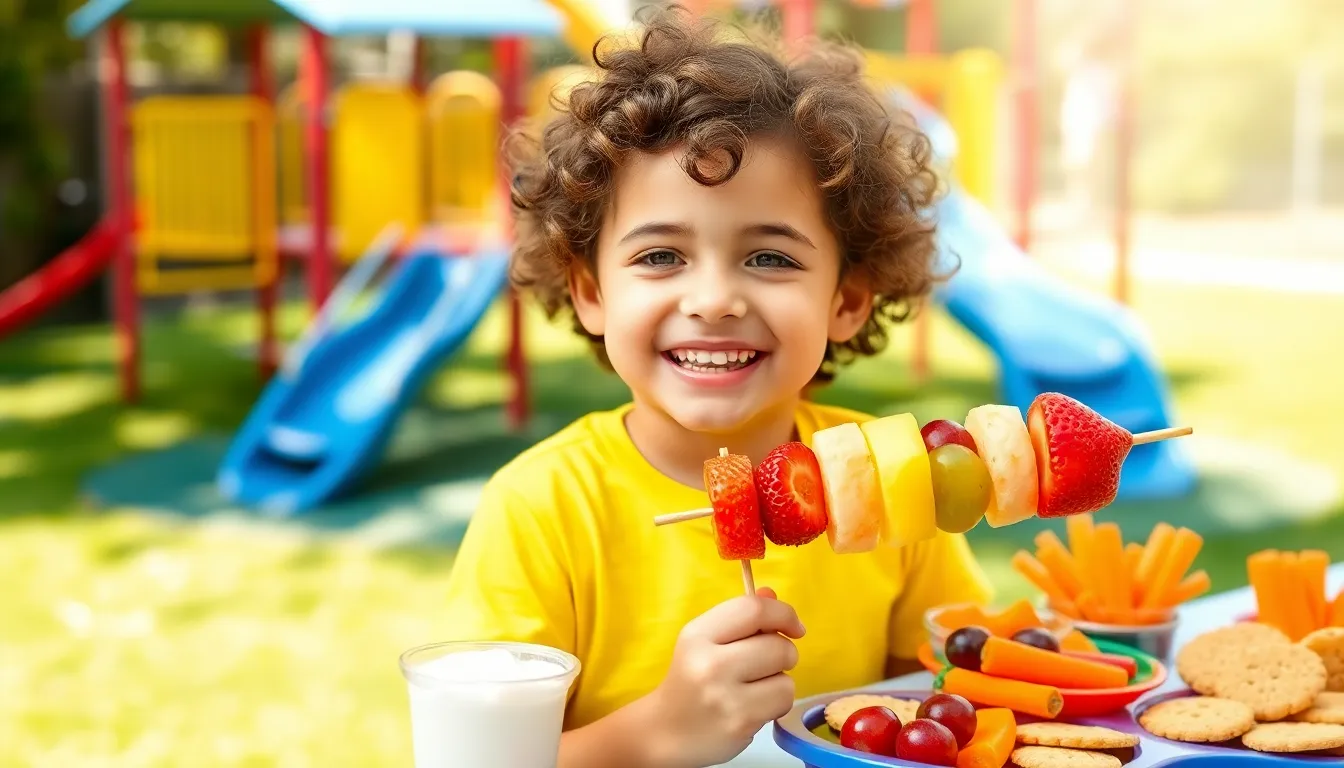Preschool snacks are the unsung heroes of early childhood. They fuel tiny explorers as they conquer the playground and tackle arts and crafts with sticky fingers. But let’s face it, not all snacks are created equal. Some are as exciting as a nap time, while others can turn snack time into a mini celebration.
Table of Contents
ToggleImportance Of Healthy Preschool Snacks
Healthy preschool snacks significantly contribute to children’s overall well-being and help maintain their energy levels throughout the day. These snacks support physical growth and cognitive development, forming a foundation for lifelong healthy eating habits.
Nutritional Needs Of Preschoolers
Preschoolers require a balanced diet to fuel their active lifestyles. Nutritional needs for children ages 3 to 5 include essential vitamins, minerals, and macronutrients. Snacks should include a mix of fruits, vegetables, whole grains, and proteins. For example, carrots paired with hummus provide vitamins and healthy fats. Yogurt with fruit serves as a quick source of calcium and fiber. Varied snacks promote nutrient diversity, supporting healthy growth and ensuring that young children receive adequate nourishment.
Impact On Learning And Development
Healthy snacks play a vital role in enhancing learning and development in preschoolers. Proper nutrition positively impacts concentration and memory. Research shows that balanced snacks increase attention spans during learning activities by stabilizing blood sugar levels. For instance, whole grain crackers can provide sustained energy, while nuts offer essential fatty acids for brain function. When snacks nourish the body, they also support social interactions among peers during snack time, fostering essential communication skills.
Types Of Preschool Snacks

Choosing the right types of preschool snacks supports energetic play and promotes healthy growth. Here are some great snack categories to consider.
Fruits And Vegetables
Fresh fruits and vegetables provide essential vitamins and minerals. Offer sliced apples, bananas, or berries for quick, nutritious options. Carrot sticks, cucumber slices, and bell pepper strips are also appealing choices. Pairing fruits and veggies with yogurt or hummus encourages exploration and variety. Colorful snacks stimulate interest while also fostering healthy eating habits.
Whole Grains
Whole grains contribute fiber, which aids digestion and sustains energy levels. Choose snacks like whole grain crackers, popcorn, or oatmeal. Whole grain bread provides a versatile base for sandwiches or toast, making it easy to add toppings. Snacks that incorporate oats, like homemade granola bars, deliver flavor and nutritional benefits. These options support active preschool lifestyles while satisfying hunger.
Dairy Options
Dairy snacks supply calcium and protein for strong bones and muscles. Yogurt cups are convenient, especially when topped with fruit or granola. Cheese sticks or cubes appeal to young taste buds and can be paired with whole grain crackers. Milk, whether in a cup or on its own, remains a classic choice for hydration and nutrition. Offering a variety of dairy options encourages healthy habits from an early age.
Protein-Packed Snacks
Protein-packed snacks support development and help maintain focus during activities. Options include hard-boiled eggs or nut butters spread on whole grain toast. Consider turkey or chicken roll-ups for a savory, satisfying treat. Tofu offers a plant-based alternative that young children might enjoy experimenting with. Providing a range of protein sources fuels active play and promotes overall health.
Creative And Fun Snack Ideas
Engaging preschoolers with creative snacks can enhance their eating experience. These ideas make snack time enjoyable while ensuring nutritional value.
DIY Snack Recipes
Making snacks offers preschoolers an opportunity to practice skills. They can create fruit kabobs with assorted fruits like strawberries, bananas, and grapes. Preparing yogurt parfaits using layers of yogurt, granola, and berries encourages independence and exploration. Peanut butter spread on apple slices provides a tasty mix of sweet and savory. Involving children in the preparation of trail mix with nuts, seeds, and dried fruits fosters creativity and choice-making skills. Each DIY snack recipe not only nourishes but also entertains.
Themed Snack Plates
Themed snack plates keep preschoolers excited about food. Designing a rainbow-themed plate with colorful fruits provides a visual feast. Using animal shapes for sandwiches fosters fun and imagination. Seasonal themes, like pumpkin snacks in fall or star-shaped fruits in summer, inspire creativity. Incorporating interactive elements, such as dip stations with hummus or salsa, encourages kids to taste and try different flavors. Themed snacks allow for social interaction, making snack time a communal and enjoyable affair.
Tips For Packing Snacks
Packing snacks effectively can enhance the experience for preschoolers. Careful planning ensures delicious, healthy options are ready for snack time.
Portion Control
Portion control helps manage the snacks children consume. Small servings minimize waste and promote mindful eating habits. Consider using visually appealing containers, such as divided plates or small bags, to make portions clear. Pre-portioning snacks, like carrot sticks or apple slices, encourages young ones to recognize appropriate serving sizes. This approach also eases transitions between activities, keeping energy levels balanced without overindulgence.
Ensuring Freshness
Ensuring freshness of snacks plays a crucial role in the overall snack experience. Utilize insulated lunch boxes or containers with ice packs to maintain optimal temperatures. Select fruits and veggies that stay fresh longer, such as grapes and cherry tomatoes. Wrapping items like cheese or nut butter-filled celery in cling wrap helps them retain moisture. Regularly rotating snacks based on seasonal availability keeps options exciting and nutritious. With proper attention, snacks can remain fresh and appealing throughout the day.
Healthy preschool snacks play a vital role in supporting children’s growth and development. By providing a variety of nutritious options, caregivers can ensure that snack time is both enjoyable and beneficial. Creative and engaging snack ideas not only promote healthy eating habits but also foster independence and social interaction among peers.
With thoughtful planning and preparation, snack time can become a delightful experience that fuels active play and enhances learning. By focusing on fresh fruits, whole grains, dairy, and proteins, caregivers can help preschoolers thrive in their daily activities. Prioritizing nutrition during these formative years sets the foundation for lifelong healthy habits.



